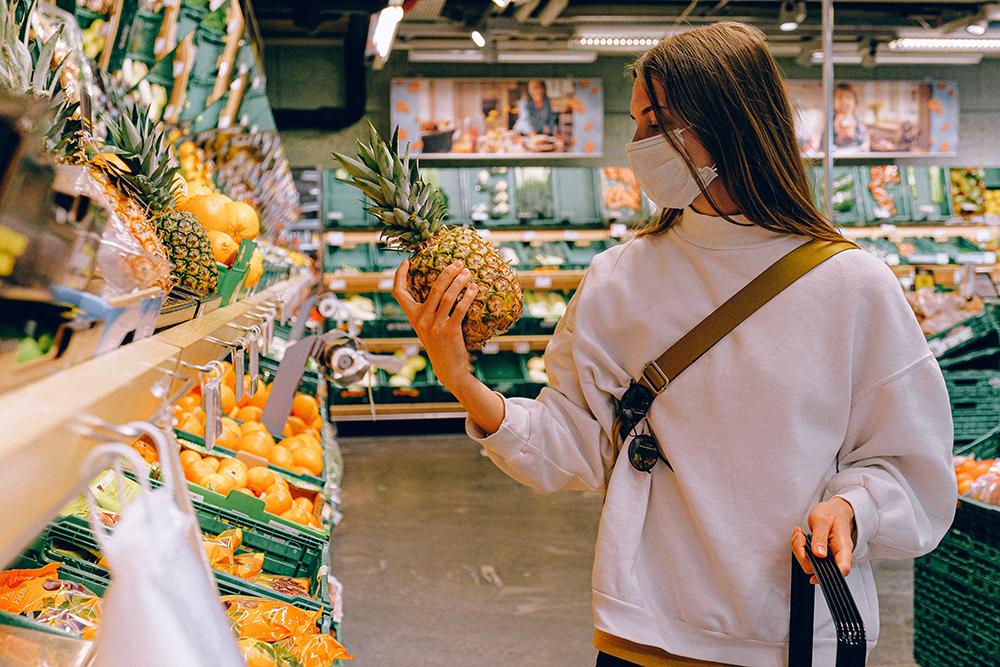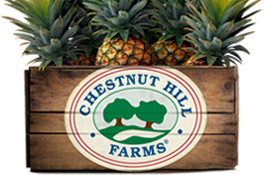
How Covid-19 Has Created a Change in Consumer Shopping Habits
With the Covid-19 pandemic has come an undeniable shift in how we live our lives, and one of the facets of life most affected has been our approach to food. A 2020 Food & Health Survey found that 85% of respondents had altered their food habits in some way due to Covid-19. This included eating at home more frequently, prioritizing food safety, and finding food to be on their minds more often.
As attitudes and expectations of food shift, it’s important that retailers stay on top of new consumer trends. Fresh produce sales, including pineapple, are being impacted by preferences for healthier options, as well as a shift toward online grocery shopping. Read on to learn more about some of the most common shifts in how consumers interact with food and how you can adapt the shopper experience to continue driving sales of pineapple.
Preparing Food at Home
Prior to the pandemic, 56% of Americans dined out or ordered take out 2-3 times a week, according to a survey from Fourth. Now, trends suggest that 65% of people will continue to skip restaurants in favor of eating at home even as restrictions are lessened. For many people, this may mean experimenting with cooking for the first time. As always, education is key here: providing information such as how to cut a pineapple or what to eat it with can help ease concerns of wary shoppers.
Similarly, providing recipes, particularly easy ones, will likely be appreciated by consumers who are growing tired of preparing complicated meals. The 2020 US Grocery Shopper Trends report found that, by mid-May, 23% of shoppers said their priority when cooking “is to spend as little time as possible doing it.” For weary home cooks, try suggesting simple recipes like pineapple stir fry or pineapple smoothies, which require minimal work and can often be prepared in advance.
Ordering Groceries Online
While online shopping ensures groceries are accessible for more shoppers, it also has the effect of making consumers more conscious about their purchases. Impulse buys, which includes roughly 80% of produce purchases, may be reduced as shoppers are less likely to be influenced by attractive displays and sampling tactics.
Despite this, the pandemic has driven consumers to shop for foods they previously weren’t buying online – including produce. A study has shown that shoppers are far more willing to add fresh categories to their carts now, using online services for more complete shops instead of for stocking up on pantry items. To ensure shoppers continue to add pineapple to their cart, retailers can emphasize the health benefits of the fruit and offer other valuable information, such as recipes or tips for preparing it, on their website.
Making Healthier Choices
While working from home and general stress is driving some consumers to snack more, the pandemic has also seen a shift toward healthier habits for many consumers. A survey conducted by Influence Central found that 43% of respondents are eating more fruits now than before the pandemic. Likewise, eating at home is frequently healthier than eating at restaurants, which often prepare food that’s high in sodium, calories, and sugar.
For shoppers looking to boost their nutrition, pineapple is a perfect choice. A single cup of the fruit contains the recommended daily intake of vitamin C, while also providing bromelain, vitamin A, and many other vitamins and minerals. For those who find themselves snacking more frequently, pineapple’s natural sweetness also makes it a great substitution for less nutritious options like cookies or candy.
If you’re interested in sharing Chestnut Hill Farms pineapples with your customers, get in touch with our sales team today.
Already a Chestnut Hill Farms retailer? Contact our team to learn about marketing during Covid-19, enhancing your displays, and more.


